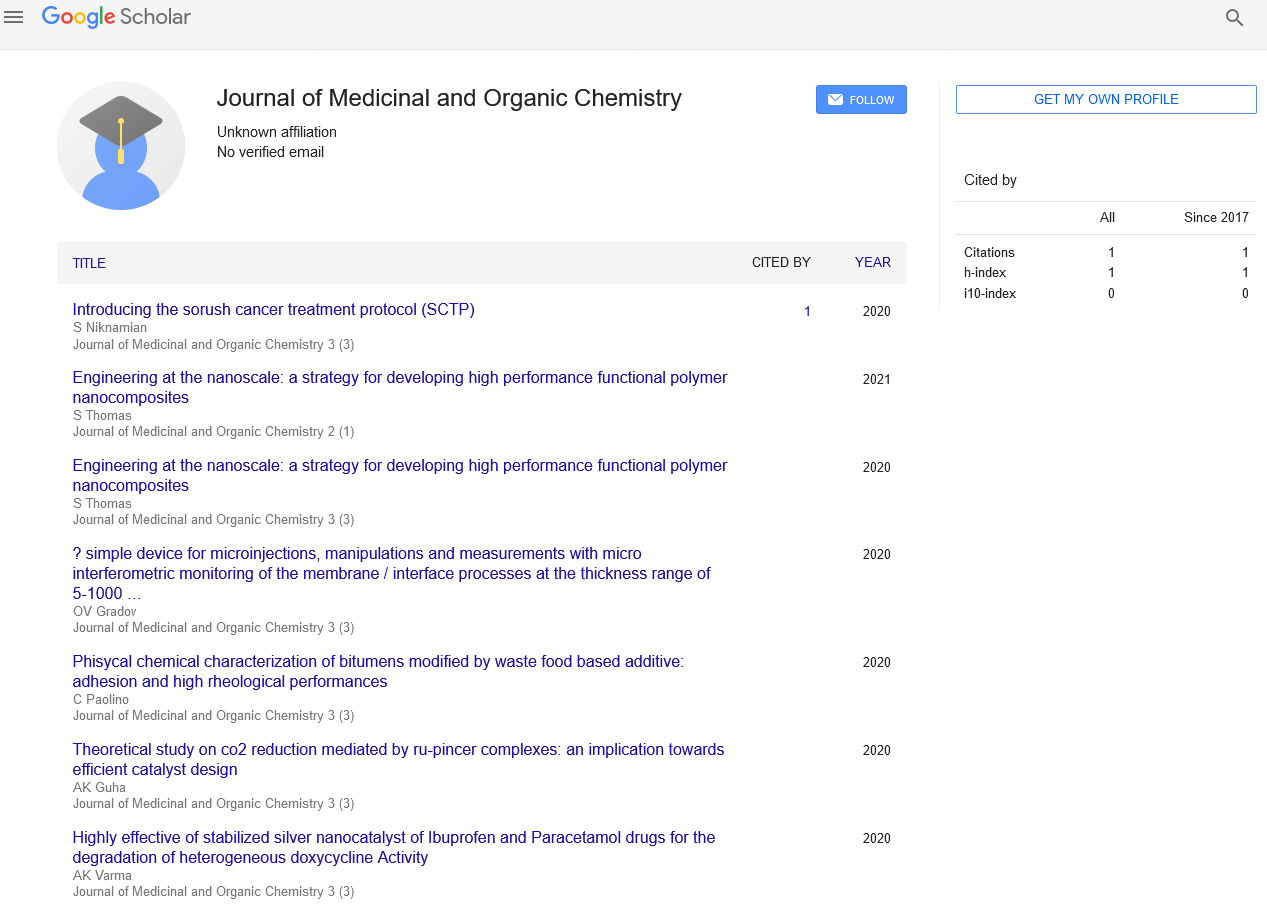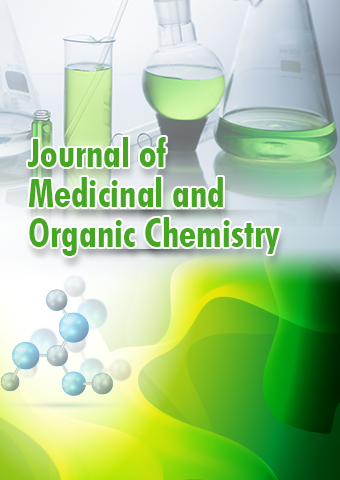Perspective - Journal of Medicinal and Organic Chemistry (2024) Volume 7, Issue 2
Nourishing the Body and Mind: Exploring the Science of Nutrition
- Corresponding Author:
- Alka Garnier
Department of Nutritional Science,
Nancy University,
Paris,
France
E-mail: alka.garnier@chu-nantes.fr
Received: 07-Mar-2024, Manuscript No. jmoc-24-129072; Editor assigned: 12-Mar-2024, PreQC No. jmoc-24-129072 (PQ); Reviewed: 26-Mar-2024, QC No. jmoc-24-129072; Revised: 11-Apr-2024, Manuscript No. jmoc-24-129072 (R); Published: 18-Apr-2024, DOI: 10.37532/jmoc.2024.7(2).183-184
Introduction
Nutrition, often hailed as the cornerstone of health and well-being, encompasses the study of how food and nutrients influence our bodies’ functions and overall health. From the energy derived from macronutrients to the micronutrients that support vital physiological processes, nutrition plays a pivotal role in every aspect of our lives. In this exploration of the science of nutrition, we delve into the intricacies of dietary choices, the impact of nutrition on health outcomes, and the keys to fostering a balanced and nourishing relationship with food.
Description
The foundations of nutrition: Macronutrients and micronutrients
At its core, nutrition revolves around the consumption of macronutrients-carbohydrates, proteins, and fats that provide the energy and building blocks necessary for cellular function and metabolism. Carbohydrates serve as the primary source of energy, fueling bodily processes and physical activity. Proteins, composed of amino acids, play essential roles in tissue repair, immune function, and the synthesis of enzymes and hormones. Fats, while often vilified, are crucial for energy storage, insulation, and the absorption of fat-soluble vitamins.
In addition to macronutrients, micronutrients such as vitamins and minerals are vital for maintaining health and preventing deficiency-related diseases. These micronutrients act as cofactors for enzymatic reactions, antioxidants that neutralize free radicals, and regulators of immune function and hormone signaling. While needed in smaller quantities compared to macronutrients, micronutrients are no less essential for optimal health and well-being.
Nutrition and health: The role of diet in disease prevention
Mounting evidence underscores the profound impact of diet on health outcomes, with dietary patterns playing a crucial role in the prevention and management of chronic diseases. A diet rich in fruits, vegetables, whole grains, and lean proteins has been associated with reduced risk of cardiovascular disease, type 2 diabetes, cancer, and other chronic conditions. Conversely, diets high in processed foods, added sugars, and unhealthy fats are linked to increased disease risk and adverse health outcomes.
The Mediterranean diet, characterized by abundant plant foods, fish, olive oil, and moderate consumption of wine, exemplifies a dietary pattern associated with longevity and reduced risk of chronic diseases. Similarly, the Dietary Approaches to Stop Hypertension (DASH) diet, which emphasizes fruits, vegetables, whole grains, and low-fat dairy products, has been shown to lower blood pressure and improve heart health.
Navigating nutritional controversies: Debunking myths and misconceptions
In an era inundated with conflicting dietary advice and fad diets, distinguishing between nutrition facts and myths can be challenging. From the demonization of certain macronutrients to the promotion of unproven dietary supplements, misinformation abounds in the realm of nutrition. It is imperative to critically evaluate nutritional claims and seek evidence-based guidance from reputable sources.
The rise of social media influencers and wellness trends has further blurred the lines between science and pseudoscience, leading to the dissemination of dubious nutrition advice and harmful dietary practices. Skepticism and scrutiny are essential when evaluating nutritionrelated information, ensuring that dietary choices are grounded in scientific evidence and tailored to individual needs and preferences.
Cultivating a healthy relationship with food: Mindful eating and intuitive nutrition
In addition to focusing on the nutritional content of foods, fostering a positive and mindful relationship with food is paramount for overall well-being. Mindful eating, rooted in the principles of mindfulness meditation, encourages awareness of hunger and satiety cues, appreciation of food flavors and textures, and nonjudgmental acceptance of eating experiences.
Intuitive nutrition, similarly, emphasizes listening to the body’s innate hunger and fullness signals, honoring cravings and preferences, and rejecting dieting mentality and food guilt. By reconnecting with our body’s wisdom and cultivating self-compassion, intuitive nutrition promotes a balanced and sustainable approach to eating that nourishes both body and soul.
The future of nutrition: Challenges and opportunities
As we look ahead, the field of nutrition faces a myriad of challenges and opportunities in addressing global health issues and promoting sustainable food systems. Rising rates of obesity, malnutrition, and diet-related diseases underscore the urgency of adopting evidencebased nutrition interventions and policies to improve public health outcomes.
At the same time, advancements in nutritional science, technology, and public health offer promising avenues for innovation and collaboration. From personalized nutrition approaches tailored to individual genetic makeup and metabolic profiles to sustainable food production methods that mitigate environmental impact, the future of nutrition holds the potential to transform lives and communities worldwide.
Conclusion
In conclusion, nutrition serves as the cornerstone of health and vitality, shaping our physical, mental, and emotional well-being. By embracing the principles of balanced eating, mindful nourishment, and evidence-based practice, we can harness the power of nutrition to optimize health outcomes and foster a more nourished and resilient world. Let us embark on this journey of discovery and empowerment, guided by the wisdom of science and the nourishing bounty of nature.

